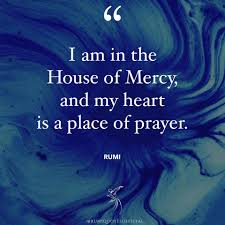Lenten Reflection Day 5 (Feb 26): MERCIFUL (from Joel 2:12-17).
SONG: Mercy by Shawn Mendes: https://youtu.be/KkGVmN68ByU QUOTE: Maya Angelou: Without courage we cannot practice any other virtue with consistency. We can’t be kind, true, merciful, generous, or honest. POEM: Jose Antonio Rodriguez: Mercy (excerpt) … if you find me hereErecting the same elements With these meager tools, Wanting even now to give them life, That […]

